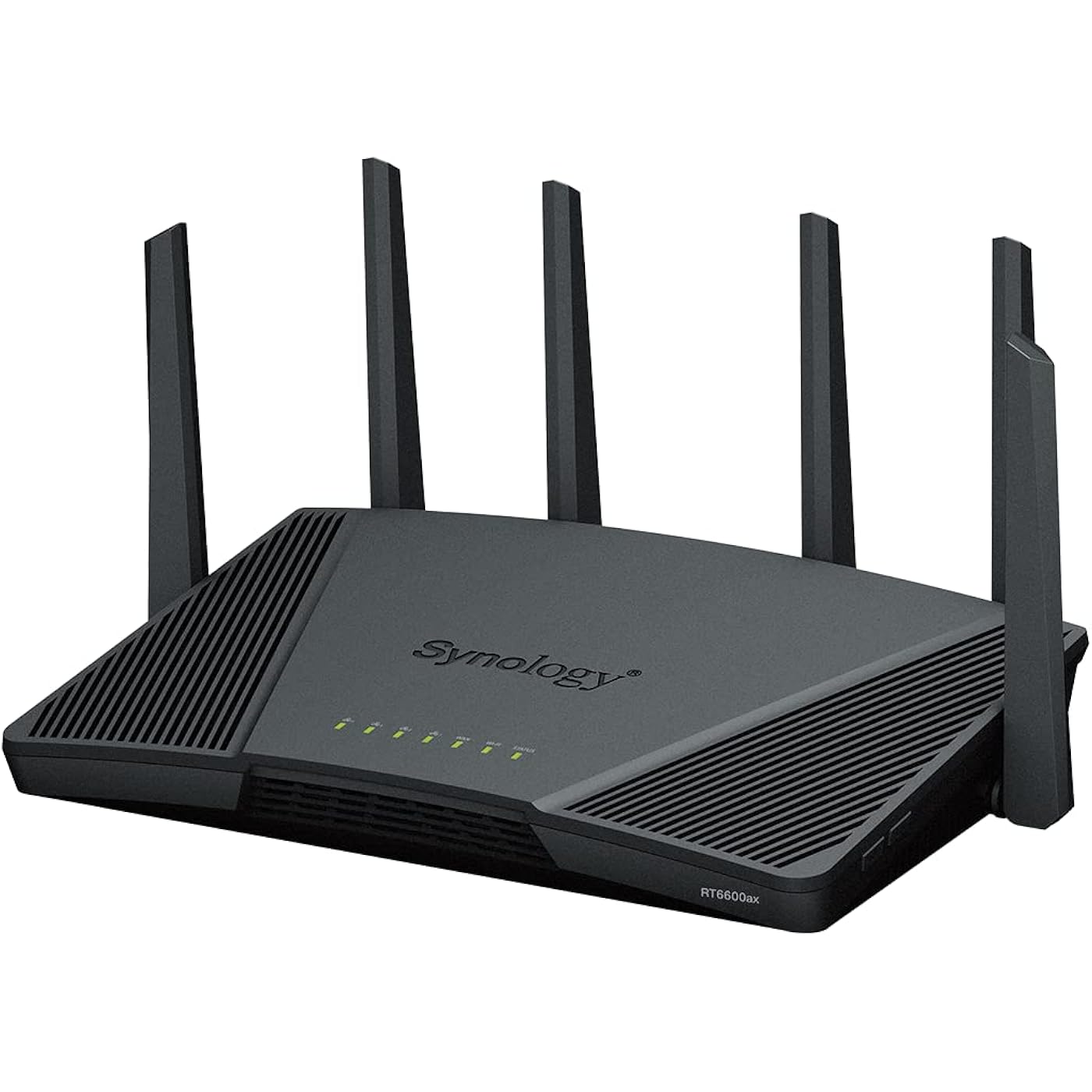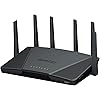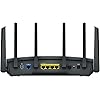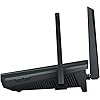










Ready to go? Add this product to your cart and select a plan during checkout. Payment plans are offered through our trusted finance partners Klarna, PayTomorrow, Affirm, Afterpay, Apple Pay, and PayPal. No-credit-needed leasing options through Acima may also be available at checkout.
Learn more about financing & leasing here.
This item is eligible for return within 30 days of receipt
To qualify for a full refund, items must be returned in their original, unused condition. If an item is returned in a used, damaged, or materially different state, you may be granted a partial refund.
To initiate a return, please visit our Returns Center.
View our full returns policy here.
Style: RT6600ax
Pattern Name: Wi-Fi router
Features
Description
Built around the new Wi-Fi 6 standard, the RT6600ax tri-band router can deliver up to 6.6 Gbps in combined wireless throughput. The three radios work in tandem with the configurable 2.5GbE WAN/LAN port to ensure the maximum connection speed for each device. Powered by our constantly evolving Synology Router Manager operating system, the RT6600ax is designed to make securing and managing your network simple.
Brand: Synology
Model Name: RT6600ax (US)
Special Feature: WPS
Frequency Band Class: Tri-Band
Wireless Communication Standard: 802.11n, 802.11ax, 802.11a, 802.11ac
Compatible Devices: Laptop, Gaming Console, Smartphone
Frequency: 5.9 GHz
Recommended Uses For Product: Home
Included Components: RT6600ax main unit, AC power adapter, RJ-45 LAN cable, Quick Installation Guide
Connectivity Technology: Wi-Fi
Product Dimensions: 14.25 x 10 x 4 inches
Item Weight: 4.16 pounds
Item model number: RT6600ax (US)
Date First Available: May 11, 2022
Manufacturer: Synology
Country of Origin: Taiwan
